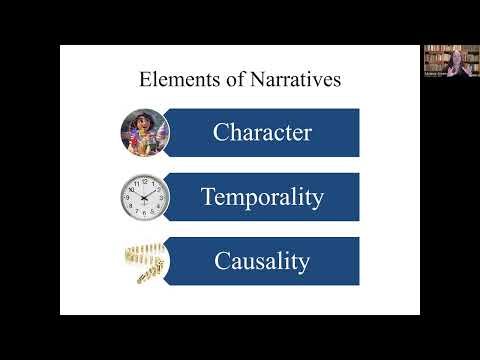 Speaker: Melanie C. Green @MelanieGreen
Speaker: Melanie C. Green @MelanieGreen
 Affiliation: University at Buffalo
Affiliation: University at Buffalo
Title: Pathways to Other Worlds: Narrative Transportation and Virtual Reality
Abstract (long version below): Media comparisons stand in a long tradition (e.g., Lessing 1766), with some scholars focusing on how the same phenomena can occur in different guises in various media, while maintaining essential characteristics; and other studies aiming to identifying unique qualities of the medium (e.g., in Chatman 1980, What Novels Can Do That Films Can’t (And Vice Versa). VR and literature seem total opposites; here we will explore how they are, and how they are not. The symposium stimulates a cross fertilization, by coupling empirical research on these media, thus generating new insights, and deepen our understanding of key concepts such as narrative, embodiment, transformative experiences, immersion, presence, and transportation.

 Long abstract
Long abstract
Summary: Researchers in virtual reality have long recognized “the book problem” (e.g., Biocca, 2002): the recognition that advanced technology is not necessary for individual to have a sense of being present in an imaginary world. Literary texts can make readers feel immersed or transported to other realities, but in different ways from current technologies. In this talk, I will use empirical studies as examples to explore the different ways that individuals enter alternative mental worlds, as well as the effects that these experiences have on audiences. Virtual reality simulations can be a valuable tool for changing individuals’ attitudes or beliefs because they provide high levels of sensory vividness, and can evoke physiological reactions to a generally greater extent than texts. Virtual reality can also directly place individuals in the role of a character by changing the appearance or abilities of an avatar, which can affect behavior even after the VR experience has ended (e.g., the Proteus effect, Yee & Bailenson, 2007). However, current VR applications tend to focus on providing environments for exploration or game-like mechanics where players have a goal to accomplish a particular task. These environments do not necessarily encourage the kind of deep reflection, individual interpretation, or theory of mind activities that are often prompted by literary texts. Thus, while VR applications may be effective for attitude or behavior change outcomes and may be valuable for directly exposing audiences to other perspectives, literary reading may still be a better way to prompt deeper understanding of other minds and their social and psychological experiences. However, the content of particular VR applications may provide more opportunities for this type of learning and engagement.

